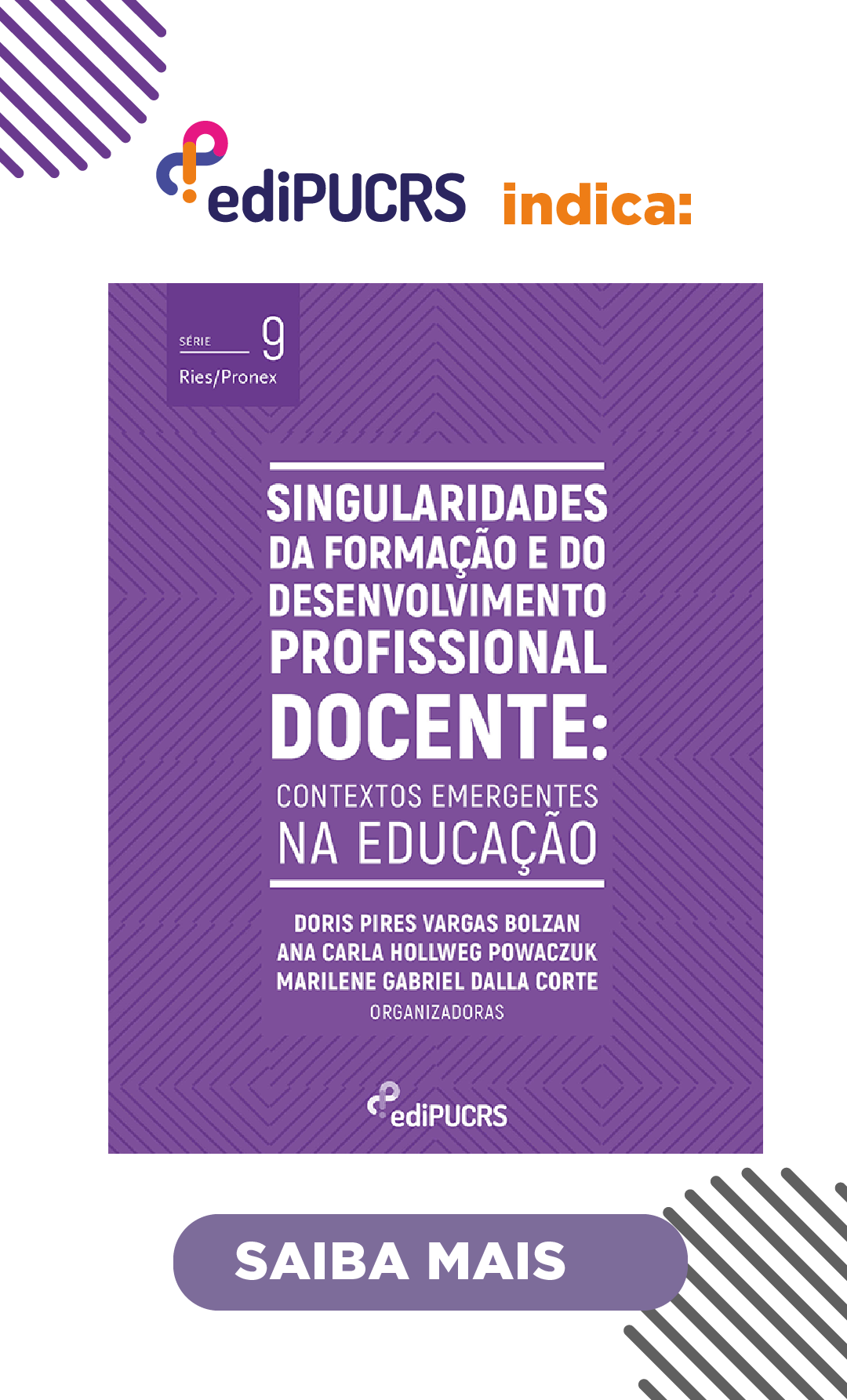Technological hibridism in the classroom routine: analysing possibilities and limitations of technologies
DOI:
https://doi.org/10.15448/2179-8435.2018.2.31507Keywords:
Technological hybridism, Construction of knowledge, Algorithms, Technology.Abstract
This article explores the concept of technological hybridism in classroom routine by analyzing the possibilities and limitations of analogic (pen and paper) and digital (VisuAlg, Scratch and Kit Lego) technologies, within the scope of the dissertation The construction of the knowledge of algorithms in the context of technological hybridism: analysis of pedagogical practice applied in IFRS, carried out at the Graduate Program in Education, within the research line “Culture, Languages and Technologies in Education”. This study is characterized as a single case study and has as its theoretical foundation the assumptions of genetic epistemology developed by Jean Piaget. The data collected were submitted to the Bardin Technique Content Analysis (2006). For the collection of the bases empirical data, analogic and digital technologies were presented, which served as technological bases for the development of algorithm teaching and learning processes throughout the Programming Logic course. The context of technological hybridism has potentialized construction of knowledge, especially on account of the plurality in the representation of knowledge, contemplating various strategies and languages in the learning process, providing protagonism to the subject and conferring meaning to knowledge.
Downloads
References
BACKES, Luciana; RATTO, Cleber G. The tribes in the context of the digital technological hybridism: the constitution of the virtual digital acquaintanceship. ETD: Educação Temática Digital, v. 18, p. 564-579, 2016.
BARDIN, Laurence. Análise de conteúdo. São Paulo: Edições 70, 2006.
CANCLINI, Néstor García. Culturas híbridas: estrategias para entrar y salir de la modernidad. Buenos Aires: Sudamericana, 1992.
CASTELLS, Manuel. A era da informação: economia, sociedade e cultura. 10. ed. São Paulo: Paz e Terra, 2007.
GIL, Antonio Carlos. Como elaborar projetos de pesquisa. 5. ed. São Paulo: Atlas, 2010.
KERN, Daniela. O conceito de hibridismo ontem e hoje: ruptura e contato. MÉTIS: história & cultura, v. 3, n. 6, p. 53-70, jul./dez. 2004. Disponível em:
http://www.ucs.br/etc/revistas/index.php/metis/article/view/1158/797. Acesso em: 19 jul. 2018.
LATOUR, Bruno. Jamais fomos modernos: ensaio de antropologia simétrica. Tradução Carlos Irineu da Costa. Rio de Janeiro. Ed. 34, 1994.
LEGO, Mindstorms Education. Manual do NXT 2.0. 2008. [PDF].
MARJI, Majed. Aprenda a programar com Scratch. São Paulo: Novatec, 2014.
NORONHA, Fabrícia P T. A construção do conhecimento de algoritmos no contexto do hibridismo tecnológico: análise da prática pedagógica aplicada no IFRS. Dissertação (Mestrado em Educação) – Centro Universitário La Salle, Canoas, 2016.
PIAGET, Jean. Estudos sociológicos. Rio de Janeiro: Forense, 1973.
PIAGET, Jean. A equilibração das estruturas cognitivas: problema central do desenvolvimento. Rio de Janeiro: Zahar, 1976.
PIAGET, Jean. A tomada de consciência. São Paulo: Melhoramentos, 1977.
PIAGET, Jean. Epistemologia genética. Tradução Álvaro Cabral. 3. ed. São Paulo: Martins Fontes, 2007.
PIAGET, Jean. Seis estudos de Piaget. Tradução Maria Alice Magalhães D’Amorim e Paulo Sérgio Lima Silva. 25. ed. Rio de Janeiro: Forense Universitária, 2011.
SANTAELLA, Lucia. A ecologia pluralista das mídias locativas. Revista Famecos, Porto Alegre, n. 37, 2008. Disponível em:
https://revistaseletronicas.pucrs.br/ojs/index.php/revistafamecos/article/view/4795. Acesso em: 22 jul. 2018.
SANTOS, Milton. A natureza do espaço: técnica e tempo, razão e emoção. 4. ed. São Paulo: Editora da Universidade de São Paulo, 2006. Disponível em:
http://bibliodigital.unijui.edu.br:8080/xmlui/bitstream/handle/123456789/1799/A%20natureza%20do%20Espa%C3%A7o.pdf?seq%3E.%20Acesso%20em:%2020%20fev.%202017. Acesso em: 20 jul. 2018.
Downloads
Published
How to Cite
Issue
Section
License
Copyright
The submission of originals to Educação Por Escrito implies the transfer by the authors of the right for publication. Authors retain copyright and grant the journal right of first publication. If the authors wish to include the same data into another publication, they must cite Educação Por Escrito as the site of original publication.
Creative Commons License
Except where otherwise specified, material published in this journal is licensed under a Creative Commons Attribution 4.0 International license, which allows unrestricted use, distribution and reproduction in any medium, provided the original publication is correctly cited.





